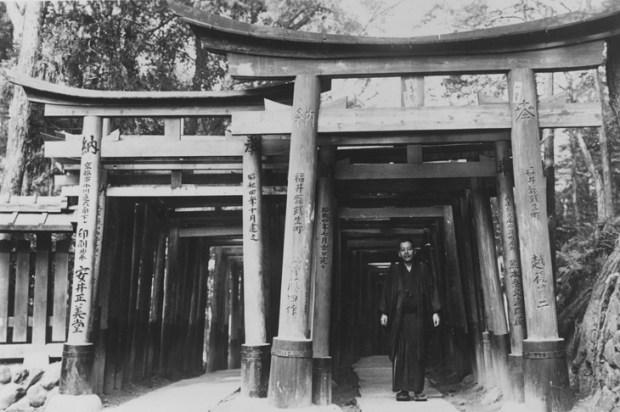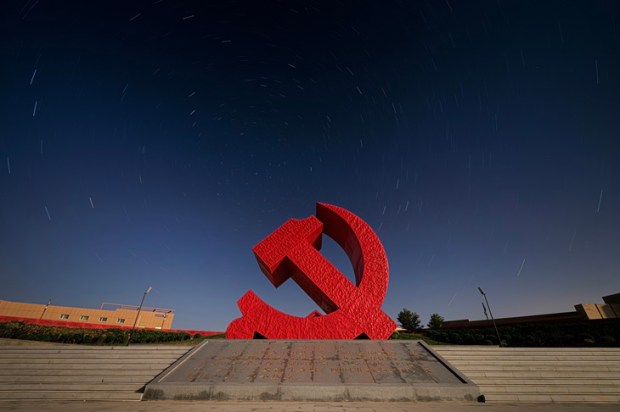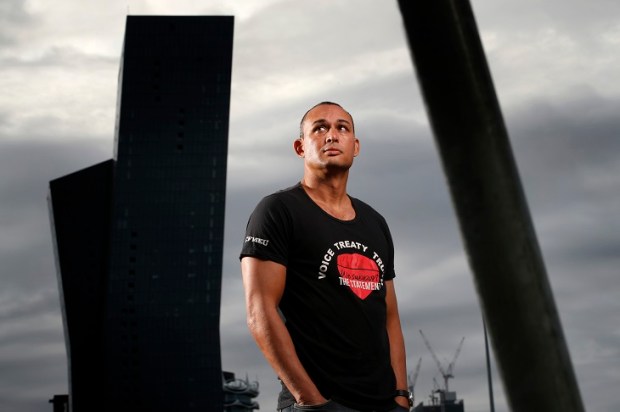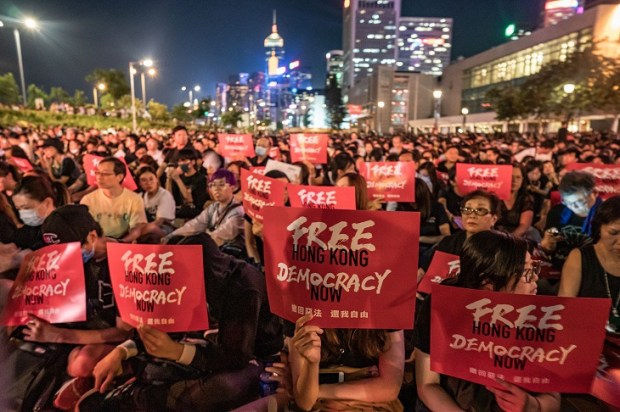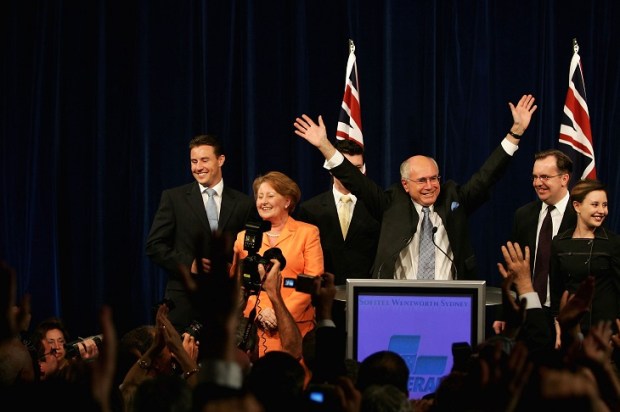To the amusement of other classmates at the adults’ Saturday Vietnamese class, one tutor and I often wind up trying to explain political philosophy to one another in Vietnamese (‘Không, không,’ I once exclaimed just as the class went silent, ‘cái đó không phải là genocide!’).
One afternoon, I settle for a descriptive phrase to describe ‘libertarianism’: tự do buôn bán và tự do ngôn luận (free trade and freedom of speech). The Vietnamese language does not appear to have an equivalent term, the closest being ‘liberalism’ (chủ nghĩa tự do).
The topic of libertarianism arose because Friedrich Hayek’s The Road To Serfdom had featured in the online magazine Luật Khoa Tạp Chí (Journal Of Law), under its Vietnamese title Đường Về Nô Lệ, as a banned book one should read before one dies. Luật Khoa Tạp Chí is a Vietnamese-language news and commentary platform that aims to educate Vietnamese speakers on basic political concepts, individual rights, and censorship issues. Recent focuses have been on internet censorship and the right to privacy.
Luật Khoa Tạp Chí was founded by writer and democracy activist Đoan Trang Phạm. Her book Chính trị bình dân (Politics For Everyone) is a comprehensive coverage of foundational political and historical concepts such as the nation-state, liberalism, and totalitarianism which aims to provide Vietnamese laypeople with general civic knowledge. The book was also a primary reason for Phạm’s detainment and nine-year prison sentence under accusations of conducting propaganda against the State of the Socialist Republic of Vietnam. On October 18, 2022, PEN International renewed its call for the immediate and unconditional release of Đoan Trang Phạm, marking the two-year anniversary from her detainment.
Here is an opportunity for those on the Right and others concerned with the state of democracy to show courage.
In this article, I adopt a somewhat utilitarian tone towards the advocacy for detained writers in totalitarian regimes. It is not to treat their stories as fodder for bolstering a ‘West is best’ motto. Rather, it is to answer the question: why should a wealthy, conservative politician living in Sydney’s North Shore care about a political prisoner in Myanmar, Vietnam, or China?
In recent years, there has been panic on the libertarian and conservative Right about the descending popularity of democracy in the West. An article from the Centre for Independent studies found that nearly two-thirds of Australian Millennials viewed socialism in a favourable light, which the article suggested was indicative of an ignorance of socialism’s historical disasters and romanticisation of the ideology. Joanna Williams’ book How Woke Won argues that radical leftist identity politics’ seizure of political, academic, and corporate institutions is damaging the development of egalitarian and democratic societies.
Instead of cursing the rise of socialist sympathy among sheltered youths in western democracies, engaging in international advocacy for pro-democracy voices such as Phạm’s is a more effective strategy for demonstrating that democracy is preferable to an oppressive leadership. Spotlighting pro-democracy writers perfectly illustrates the cliched tip to writers, ‘show don’t tell’: explaining the hurdles and harassment that writers face for promoting freedom of expression and independent press in their countries is a far more intelligent and emotive strategy than simply shouting about how every unlikeable government policy is a step towards North Korea.
International concern has typically been seen as a characteristic of the progressive Left’s ‘citizens of the world’ fluff, while the Right has been associated with nationalistic insularity. However, the Right historically has engaged in international ideological struggles, the key event being the Cold War. Furthermore, Hayek’s The Road To Serfdom discussed the need for ‘a community of nations of free men’ to protect against the tyranny of the state against the individual:
‘An international authority which effectively limits the powers of the state over the individual will be one of the best safeguards of peace… Neither an omnipotent super-state, nor a loose association of ‘free nations’, but a community of nations of free men must be our goal.’
Quốc Tấn Trung Nguyễn’s article ‘Does International Law Protect Taiwan?’ alludes to the need for the protection offered by Hayek’s notion of the ‘community of nations of free men.’
When considering questions about the Taiwanese people’s rights to international protection from Chinese aggression, Nguyen argues that legal nit-picking about Taiwan’s status as an official, independent state misses the crucial point that individual rights should be unassailable. An international community must unite around cultural values that support individual freedom, not waste time with legal minutiae.
Prioritisation of arbitrary legal rules over people’s basic right to peace and autonomy may allow totalitarian countries to justify aggression based on twisted interpretations of history that render less powerful, resource-rich countries as rightful property. A dismissal of such breaches not only harms the targeted countries but generates a perception that democratic values and liberties are disposable in the face of economic interests.
Aerolyne Reed’s article Tyranny On the Rise: The Steady Growth of Authoritarianism Worldwide in The Vietnamese Magazine highlights the urgency of building an international alliance of liberal democracies. She notes a troubling slant towards authoritarian practices across the world over time, accelerated through the Covid pandemic, and likelihood of totalitarian China’s overpowering of American democracy.
Nevertheless, Reed’s concluding paragraph provides a hint for democracy’s way forward:
‘… rather than containing or controlling China, the West should focus more on analysing and fixing its own political systems in order to stand as a more desirable alternative to the kind of authoritarian system that China represents.’
Reed’s message can be adapted into a call for the Right to articulate a vision of democratic society that promotes rule of and equality under the law. The philosopher John Gray wrote for UnHerd that ‘the woke have no vision of the future’: violent acts such as toppling statues and flag burning are largely therapeutic and infantile rather aimed at reaching a model of a better society.
But what is the Right’s vision of the future?
CPAC sparked discussion about a need to stand up for conservative ideals in buzzwords like ‘traditional values’, ‘community’, ‘religious freedom’, and ‘family’. But what do these concepts mean? In the absence of broad and clear definitions, the Right (like its Left counterpart) leaves its loudest and most toxic voices to float into public discourse and confirm every caricature of itself as racist, homophobic, and bigoted.
The Right must present a desirable vision of democracy that is well-adapted for globally connected and diverse societies. Advocacy for pro-democracy voices within oppressive regimes is an effective messaging strategy to achieve this.
The primary enemy is not the second-year arts student with dyed hair who is going through a socialist phase. It is the active and flourishing dictatorships who arbitrarily detain writers and journalists for supporting democratic values like the rule of law and independent press, elements that make up Hayek’s ‘community of nations of free men.’
This is the modern Right’s Cold War moment.


